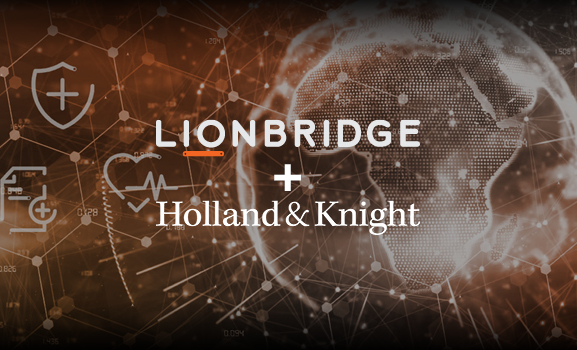- WHAT WE DO
Additional Services

- Industries

Case Study: Multilingual Retail Marketing
New AI Content Creation Solutions for a Sports and Apparel Giant

- RESOURCES

- WHO WE ARE

What We Do Home
Generative AI
- AI Translation Services
- Content Remix
AI Training
- Aurora AI Studio™
Machine Translation
- MT Tracker
Instant Interpreter
Smart Onboarding
Translation Service Models
Content Services
- Technical Writing
- Training & eLearning
- Financial Reports
- Digital Marketing
- SEO & Content Optimization
Translation Services
- Video Localization
- Software Localization
- Website Localization
- Translation for Regulated Companies
- Interpretation
- Instant Interpreter
- Live Events
- Language Quality Services
Testing Services
- Functional QA & Testing
- Compatibility Testing
- Interoperability Testing
- Performance Testing
- Accessibility Testing
- UX/CX Testing
Industries Home
Life Sciences Translations
- Pharmaceutical Translations
- Clinical Trial Translations
- Regulatory Translations
- Post-Approval Translations
- Corporate Pharma Translations
- Medical Device Language Services
- Validation and Clinical
- Regulatory Translations
- Post-Authorization Translations
- Corporate Medical Device Translations
- COA Translation Services
Banking & Finance
Retail
Luxury
E-Commerce
Games
Automotive
Consumer Packaged Goods
Technology
Industrial Manufacturing
Legal Services
Travel & Hospitality
Insights
- Blog Posts
- Case Studies
- Whitepapers
- Solution Briefs
- Infographics
- eBooks
- Videos
Webinars
Lionbridge Knowledge Hubs
- Positive Patient Outcomes
- Modern Clinical Trial Solutions
- Patient Engagement
- AI Thought Leadership
SELECT LANGUAGE:
We haven’t cured the common cold or found a miracle drug for eternal youth, but the life science industry is still hurtling from one innovation to the next. Many of these discoveries have been possible through another rapidly changing industry, technology. Just as we discussed in our Boston round table, the pharmaceutical industry has embraced artificial intelligence (AI).
While sci-fi authors may have been a little off with the details of our magical (or doomed) robotic futures, they did get one thing right: AI really is everywhere. From diagnosing car problems to finding love (or replacing it), machine learning is everywhere.
Talking to Customers and Employees with AI
In less than two decades, AI-based chatbots have grown from unconvincing human imitations to a must-have for customer interactions.
Nowadays, these bots can converse in any language with customers around the globe at any time of day or night, reducing the need to hire full-time or off-hour staff in less commonly requested languages.
From the omnipresent lower-right chat bubble to pre-packaged Facebook options, web chat interfaces are so often machines that users may hardly notice the difference anymore. That goes for internal systems too: Helpdesks and intranets often include an element of artificially intelligent conversation.
And although pharma companies often get a bad rap for being late adopters, the top tier players have been using AI internally for years. That usage includes machine translation, which can accelerate processes within the company and is now breaking out into interactions between companies and their customers.

Customizing Conversations with Machine Translation
The best machine translation services apply the same rigorous approach to content creation as content transformation. Depending on the need for speed and accuracy, these services can range from basic, unsupervised machine translations (which is especially handy for machine-to-machine communication) to post-editing after the creation of a specific model.
When a company decides to use a text translation tool like Lionbridge Geofluent, employees can access corporate content much more quickly in their native language. The right LSP can also maintain data security and branding within the company, keeping communications coherent and safe.
Pairing MT Expertise with Industry Knowledge
Within life sciences, and particularly the pharmaceutical sphere, the niche version for machine translations become both more prevalent and more useful. Training systems on health-specific information in a brand-specific style maximizes the use of these systems and frees up professional translators for post-editing and the most delicate language work.
For responsibilities like pharmacovigilance, MT is indispensable. The influx of data is constant, high volume and multilingual. Combing through existing, static databases to predict potential adverse effects is a superhuman task, let alone tracking unstructured data across constantly changing formats like social media. The more markets a company touches, the more languages and platforms need to be examined.
Language requirements are expanding every day for everyone in the life sciences world. Some of those requirements are regulatory and some are a simple matter of competition. If you can’t speak to your customers in their language, someone else will.

Train, Customize, Review, Repeat
Because Lionbridge harnesses the power of multiple MT engines, our teams can craft the most specialized engine your company needs, starting from the ground up.
Using our years of experience and your years of linguistic data, we can train an engine for you that grows with you, improving as you use it more and more. Our access to language professionals as well as machine learning experts results in linguistic accuracy and specificity. And our optional post-edit process adds an additional human touch to augment machine learning algorithms.
In addition, our offerings are vendor-agnostic. We’re also always on the lookout for the next up-and-coming MT engine, so if and when a better option appears, we’re ready to help you transition.
Reach out to our Life Sciences team today to learn more about how augmented translation can accelerate your business.




